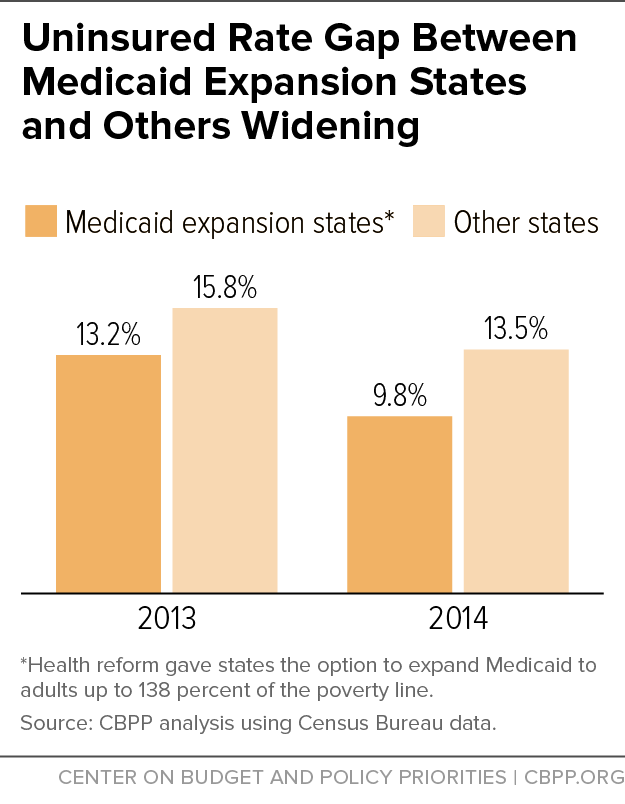BEYOND THE NUMBERS
States that have adopted health reform’s Medicaid expansion had a substantially lower uninsured rate in 2014 than states that haven’t, new Census Bureau data show. And the gap is widening.
Some 9.8 percent of people in the 25 states (including the District of Columbia) that expanded Medicaid by January 2014 lacked health insurance that year, compared with 13.5 percent in the 26 non-expansion states, according to the American Community Survey.
Uninsured rates fell in both groups of states in 2014, but they fell more in expansion states. As a result, the gap between the two groups grew from 2.6 percentage points in 2013 to 3.7 percentage points in 2014 (see chart).
The Medicaid expansion creates a pathway to coverage for all non-elderly adults with incomes up to 138 percent of the poverty line, including, for the first time, low-income adults without children. The 2012 Supreme Court decision upholding health reform made the expansion a state option, but states can take it up at any time, with the federal government bearing the full cost through 2016 and at least 90 percent of the cost thereafter. In addition to health coverage gains, many expansion states have saved money and their residents’ health has improved.

